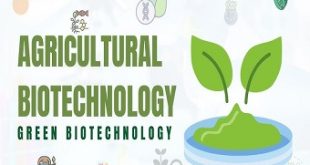The improvement of capsules has performed an indispensable position in enhancing human fitness and extending life expectancy. From historical natural treatments to contemporary pharmaceuticals, the records of capsules are a testament to humanity’s quest for recuperation and wellness. As we stand on the brink of a new generation in drug development, this essay will discover the evolution of drugs, the challenges faced, and the thrilling possibilities that lie ahead.
The Past of Drug Development
Ancient Times to the Nineteenth Century
Herbal Medicine
The use of plant life for medicinal functions dates returned hundreds of years. Ancient civilizations, such as the Egyptians, Chinese, and Greeks, documented the use of herbs in recovery practices. The Ebers Papyrus, a historical Egyptian scientific text, lists several natural remedies.
In standard Chinese medicine, natural formulations are nonetheless broadly used today, highlighting the enduring nature of these practices.
The Birth of Pharmacology
The nineteenth century marked the emergence of pharmacology as a science. Researchers started out separating energetic compounds from plants, mainly to the improvement of tablets like morphine (from the opium poppy) and quinine (from cinchona bark).
The institution of pharmaceutical organizations and the formalization of drug trying throughout this duration laid the groundwork for cutting-edge drug development.
The Era of Synthesis
The early twentieth century noticed the upward push of artificial drugs, revolutionizing the pharmaceutical landscape. The synthesis of aspirin in 1897 and the discovery of antibiotics, beginning with penicillin in 1928, changed scientific practice.
These developments ushered in the “golden age” of antibiotics and paved the way for different therapeutic classes, such as antihistamines and corticosteroids.
Late twentieth Century to Present
Regulatory Frameworks
The thalidomide tragedy of the Sixties led to stricter drug regulations. The U.S. Food and Drug Administration (FDA) and different world regulatory corporations have been mounted to ensure drug security and efficacy.
Clinical trials grew to be the gold popular for checking out new drugs, requiring massive information on safety, efficacy, and facet results earlier than approval.
Biotechnology Revolution
The late twentieth century delivered biotechnology into drug development. The advent of recombinant DNA science allowed for the manufacturing of biologics, such as insulin and monoclonal antibodies.
This length marked a shift towards focused therapies, presenting extra customized cure options.
The Present Landscape
Current Trends
Personalized Medicine
Advances in genomics and molecular biology have facilitated the upward shove of customized medicine, the place redress is tailor-made to an individual’s genetic makeup. This strategy has proven promise in fields like oncology, the place-focused healing procedures can be extra nice and have fewer facet effects.
Digital Health and Technology Integration
The integration of digital fitness technologies, such as telemedicine and cell fitness applications, has changed personal care. These applied sciences allow far-off monitoring and elevated affected person engagement, facilitating higher adherence to therapy regimens.
Regenerative Medicine
Regenerative medicine, such as stem mobilephone remedy and tissue engineering, is possible for treating formerly incurable conditions. This modern subject goals is to restore or substitute broken tissues and organs, representing a tremendous shift in therapeutic strategies.
Global Health Initiatives
There is a developing emphasis on addressing world fitness challenges, consisting of infectious diseases, pandemics, and omitted tropical diseases. Collaborative efforts amongst governments, NGOs, and pharmaceutical groups are vital for equitable get admission to to drugs worldwide.
The Future of Drugs
Emerging Trends and Technologies
Artificial Intelligence (AI) and Machine Learning
AI and desktop-gaining knowledge are set to revolutionize drug discovery and development. These applied sciences can analyze huge datasets to become aware of viable drug candidates, predict drug interactions, and optimize medical trial designs.
AI-driven algorithms can decorate drug repurposing efforts, accelerating the method of discovering new makes use for present drugs.
Gene Editing and Gene Therapy
Technologies like CRISPR/Cas9 provide groundbreaking chances for treating genetic problems with the aid of without-delay editing genes. As these strategies emerge as extra refined, gene remedy might also come to be an events section of scientific practice.
The achievable for curing genetic diseases, such as cystic fibrosis and muscular dystrophy, highlights the transformative strength of gene editing.
Nanotechnology
Nanotechnology is rising as a device for drug delivery, permitting for centered remedy that minimizes facet results and enhances therapeutic efficacy. Nanoparticles can enhance the bioavailability of tablets and allow the shipping of therapeutics to precise websites in the body.
This technological know-how should also play a function in the improvement of vaccines and most cancer therapies.
Psychedelic Research
Recent lookup into psychedelics has reignited activity in their therapeutic conceivable for stipulations like depression, PTSD, and anxiety. As regulatory attitudes shift, psychedelic-assisted remedies might also come to be greater extensively customary and built-in into mainstream medicine.
Ethical and Regulatory Considerations
Access and Affordability
As drug expenditures proceed to rise, making sure equitable admission to critical drugs remains an urgent concern. Policymakers and stakeholders have to work collaboratively to tackle pricing fashions and promote access, mainly in low-income regions.
Data Privacy and Security
The integration of digital applied sciences raises issues about information privacy and security. Protecting affected person statistics whilst leveraging facts for lookup and customized remedy is indispensable for retaining confidence in healthcare systems.
Regulatory Adaptations
Regulatory frameworks should evolve to preserve tempo with fast developments in drug development. Streamlined approval procedures for revolutionary therapies, blended with robust protection monitoring, will be integral for fostering innovation whilst making sure affected person safety.
Conclusion
The records of drug improvement display humanity’s enduring quest for fitness and healing. As we look to the future, developments in technology, personalized medicine, and world fitness initiatives promise to reshape the pharmaceutical landscape. However, moral issues and regulatory challenges will require cautious navigation to make certain that the advantages of these improvements are realized equitably and responsibly. The future of tablets is no longer simply about discoveries; it is about remodeling healthcare for the betterment of society as a whole.


